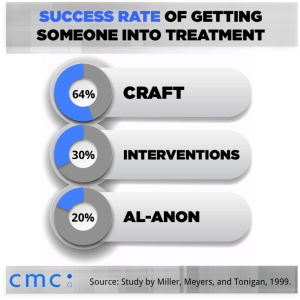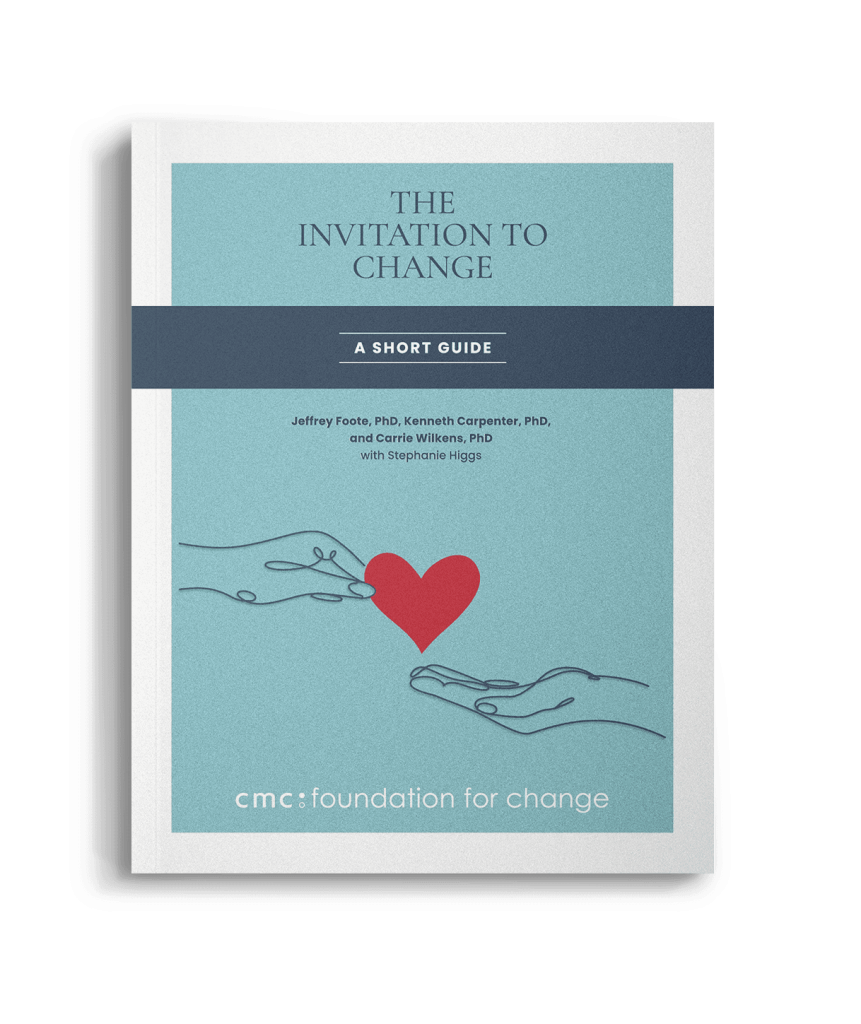Community Reinforcement and Family Training (CRAFT) teaches family and friends effective strategies for helping their loved one to change and for feeling better themselves. CRAFT works to affect the loved one’s behavior by changing the way the family interacts with him or her. It is designed to accomplish three goals:
- When a loved one is abusing substances and refusing to get help, CRAFT helps families move their loved one toward treatment.
- On its own, CRAFT helps reduce the loved one’s alcohol and drug use, whether or not the loved one has engaged in treatment yet.
- CRAFT improves the lives of the concerned family and friends.
 Drs. Robert J. Meyers and Jane Ellen Smith of the University of New Mexico developed the CRAFT program to teach families how to impact their loved one while avoiding both detachment and confrontation, the respective strategies of Al-Anon (a 12-Step based approach), and traditional (Johnson Institute-style) interventions in which the substance user is confronted by family members and friends during a surprise meeting. While all three approaches have been found to improve family members’ functioning and relationship satisfaction, CRAFT has proven to be significantly more effective in engaging loved ones in comparison to the Johnson Institute Intervention or Al-Anon/Nar-Anon facilitation therapy.
Drs. Robert J. Meyers and Jane Ellen Smith of the University of New Mexico developed the CRAFT program to teach families how to impact their loved one while avoiding both detachment and confrontation, the respective strategies of Al-Anon (a 12-Step based approach), and traditional (Johnson Institute-style) interventions in which the substance user is confronted by family members and friends during a surprise meeting. While all three approaches have been found to improve family members’ functioning and relationship satisfaction, CRAFT has proven to be significantly more effective in engaging loved ones in comparison to the Johnson Institute Intervention or Al-Anon/Nar-Anon facilitation therapy.
CRAFT is a skills-based program that impacts families in multiple areas of their lives, including self-care, pleasurable activities, problem solving, and goal setting. At the same time, CRAFT addresses their loved one’s resistance to change. CRAFT teaches families behavioral and motivational strategies for interacting with their loved one. Participants learn, for example, the power of positive reinforcement for positive behavior (and of withdrawing it for unwanted behavior), and how to use positive communication skills to improve interactions and maximize their influence.
Specifically, CRAFT teaches several skills, including:
- Understanding a loved one’s triggers to use substances
- Positive communication strategies
- Positive reinforcement strategies – rewarding non-using behavior
- Problem-solving
- Self-care
- Domestic violence precautions
- Getting a loved one to accept help
Many of these skills are valuable for the family even if their loved one does not enter treatment or has already begun the treatment process. Additionally, the skills remain essential over the long run for families in navigating and maintaining a positive trajectory for themselves as well as for their loved one. CRAFT is not a quick fix, but rather an approach that can benefit both the substance user and the family in the short and long terms with a holistic plan of action and a more optimistic view.


